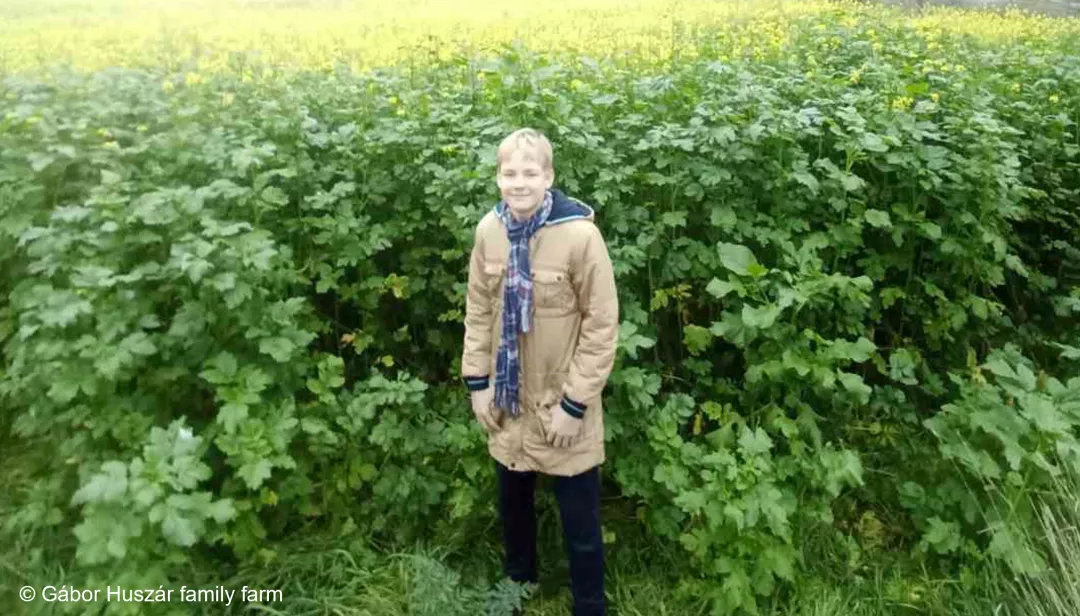General information
RDP Priority
- P4. Ecosystems management
RDP Focus Area
- 4A: Biodiversity restoration, preservation & enhancement
RDP Measure
- M11: Organic farming
Summary
The aim of this project was to establish and maintain 270 ha of organic family farmland with the objective to help safeguard food security and safety while protecting the environment including soil and biodiversity.
Results
The entire 270 ha of this family farm were converted to organic farming.
Promoter
Gábor Huszár family farm
Funding
Total budget 238 000.00 (EUR)
EAFRD 190 400.00 (EUR)
National/Regional 47 600.00 (EUR)
Resources
Documents
Context
Gábor Huszár was born into farming in Hódmezővásárhely, a small city in the Southern Great Plains of Hungary. His family’s farm had been primarily involved in pig breeding but Gábor decided to switch to organic crop cultivation and converted, step-by-step, the entire farm area to organic farming. In Hungary, the proportion of agricultural areas involved in organic farming is increasing every year and Gábor feels it is important that food is healthy.
Objectives
The aim of Gábor’s project was to transition and maintain 270 ha of conventionally farmed land into organic farmland with the objective to:
- Safeguard food security and food safety.
- Reduce adverse environmental effects from the unprofessional use of plant protection products and improper nutrient management.
- Protect the environment.
- Preserve and increase biological diversity.
- Strengthen natural self-regulating processes.
- Protect and improve the biological condition of the soil.
Activities
The key activities focused on a step-by-step transition process from conventional to organic farming and related maintenance tasks.
The transition of the entire estate took place in four stages:
Stage 1: An initial 26 ha of land started to be converted (without financial support) in 2004.
Stage 2: A further 17 ha were converted with CAP support from 2016-2020.
Stage 3: An additional 35 ha received support for their conversion between 2021-2025.
Stage 4: Support for the final 192 ha of land has been received for conversion from 2022-2025.
In practice, the following tasks and activities needed careful attention and learning:
- Compared to conventional crop cultivation, the farm’s basic work activities changed as follows:
- Complete abandonment of ploughing.
- Discing only when absolutely necessary, instead deep loosening.
- Applying a field cultivator and weed comb to help in the fight against weeds and to increase the water retention capacity of the soil.
Gábor buys seeds from a local company to ensure that organic plant varieties used are adapted to the local climatic conditions and are more resilient to the effects of climate change. The planning of the crops is based on the needs for crop rotation and the needs of the market. Detailed records are maintained of all activities including cultivation activities performed in the field, location of crop storage, sales, etc.
Main results
The entire area of the family farm, 270 ha, has been converted to organic farming (of which 244 ha were converted with CAP funding support). Gábor is currently gathering experience in relation to plant cultures and crop rotations. In 2022, the main crops sown were 80 ha of organic peas, 80 ha of organic rapeseed, 50 ha of organic barley, and 50 ha of organic wheat. Smaller areas of organic fennel and grass were also sown.
Some 26 ha of previously saline farmland has now become arable land as a result of organic cultivation care.
Key lessons
Without CAP support, it would have been difficult to convert the full farm to become certified as organic.
Organic farming requires regular and accurate observation of the development of plants and the effects of any agricultural work undertaken; more often than in conventional cultivation. This takes time. However, costs can be saved thanks to the elimination of expensive input materials (plant protection products and fertilisers).
